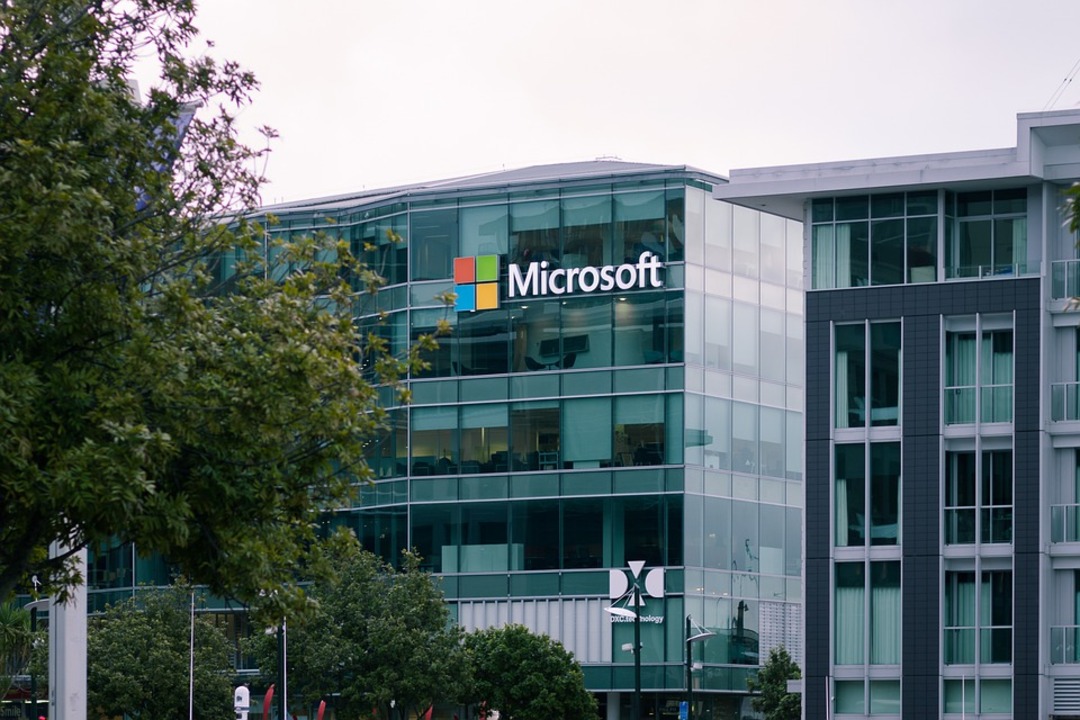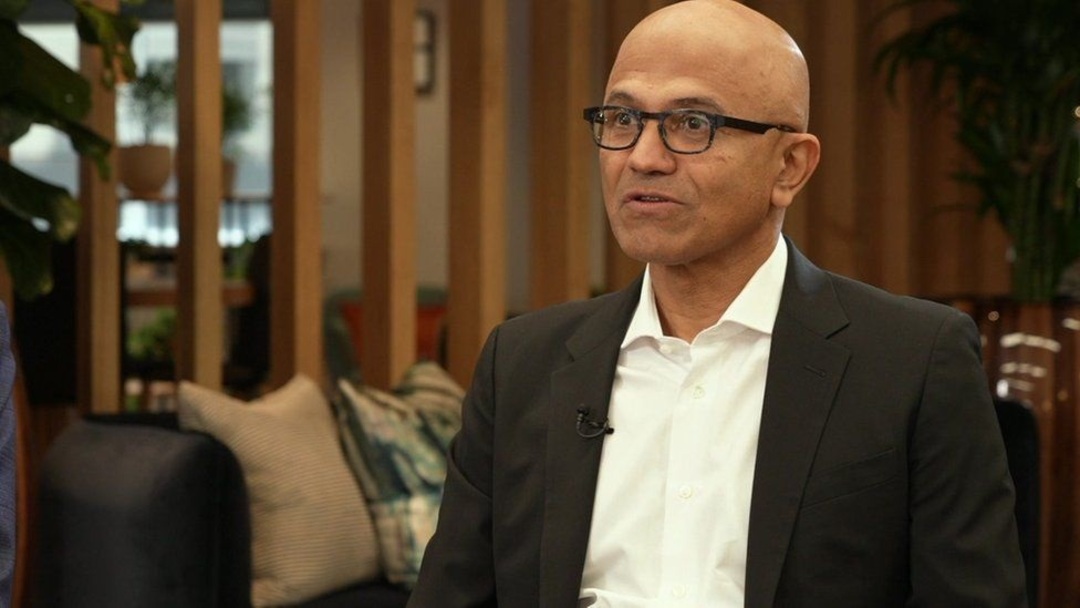-
Microsoft says that bosses think workers do less from home

Bosses in Microsoft are worried about whether working from home is as productive as being in the office.
A major new survey from Microsoft shows that bosses and workers fundamentally disagree about productivity when working from home.
The survey questioned more than 20,000 staff across 11 countries.
While 87% of workers felt they worked as, or more, efficiently from home, 80% of managers disagreed.
Microsoft chief executive Satya Nadella told the BBC this tension needed to be resolved as workplaces were unlikely to ever return to pre-pandemic work habits.
"We have to get past what we describe as 'productivity paranoia', because all of the data we have that shows that 80% plus of the individual people feel they're very productive - except their management thinks that they're not productive.

"That means there is a real disconnect in terms of the expectations and what they feel."
Microsoft employees can work from home up to 50% of the time as standard. More than that requires management approval or a move to part-time working.
At a time of acute labour shortages, employers are having to work harder to recruit, enthuse and retain staff. That even includes Microsoft itself, according to Mr Nadella.
Microsoft: new OS to be the successor to Windows 10 in 2025
"We had 70,000 people who joined Microsoft during the pandemic, they sort of saw Microsoft through the lens of the pandemic. And now when we think about the next phase, you need to re-energize them, re-recruit them, help them form social connections."
An unprecedented number of people have also changed jobs since the start of the pandemic. A phenomenon Microsoft has dubbed "the great reshuffle", sees workers born after 1997 (so-called Generation Z) nearly twice as likely to switch jobs.
By 2030, Generation Z will make up about 30% of the entire workforce so managers need to understand them, according to Mr Nadella.
Source: BBC
You May Also Like
Popular Posts
Caricature
opinion
Report
ads
Newsletter
Subscribe to our mailing list to get the new updates!























